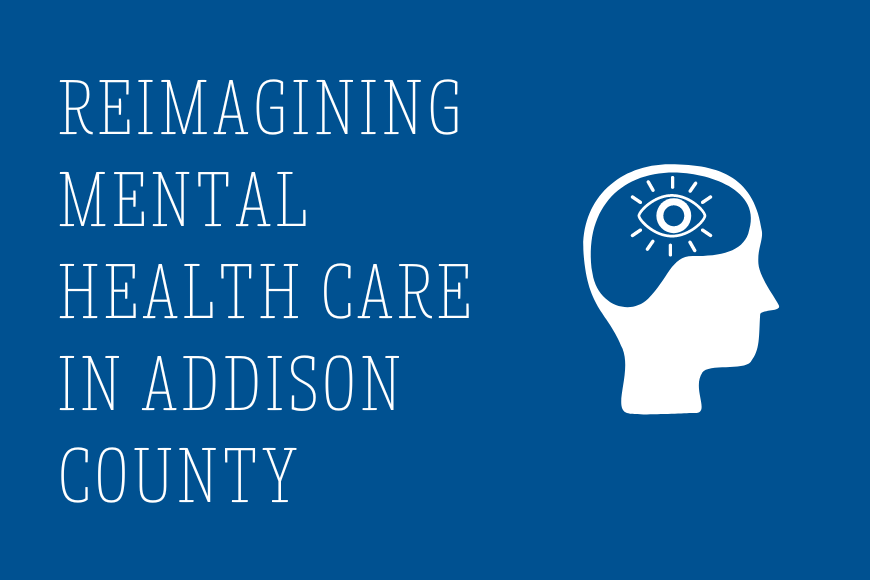
The pandemic produced worry, fear, and significant signs of strength in our community. Thus Reimagine Addison County, an initiative coordinated by UWAC, interviewed service providers in the non-profit sector, social services, and more to learn about the strategies and adaptations they developed that are enhancing the well-being and future of Addison County. In this post, we talk about the highs and lows we’ve all experienced throughout the pandemic in our conversation with Rachel Lee-Cummings, Executive Director for Counseling Service of Addison County, Inc. (CSAC). They provide mental health, substance abuse, and developmental services to help individuals and families live emotionally healthy, safe, and stable lives.
What’s Been Working
Since its inception in 1959, CSAC has provided a wealth of services to Addison County residents. They have a 24-hour emergency services hotline for people experiencing mental health crises, adult and adolescent substance abuse treatment groups and programs, individual and group mental health counseling, case management, eldercare services, care for people recovering from traumatic brain injuries or with developmental delays, employment assistance, and youth and family services including adventure-based programs, school-based programs, and home-based help. But despite decades of successful work, Rachel said that increasingly the counseling service and mental health service agencies across the state, including CSAC, are falling behind in their ability to pay competitive wages, which is problematic for the emotional health of the population.
The Pandemic Impact
The negative impact of the pandemic on the mental health of Addison County residents cannot be overstated. According to Rachel, the number of people with anxiety and depression, feeling isolated and distressed skyrocketed over the past two years and is still high. People are experiencing elevated rates of stress and uncertainty and are reacting with feelings of fear and worry. And she doesn’t see that waning anytime soon because the pandemic is ongoing for many, especially those who are caregivers; their days are often still disrupted by the pandemic. Rachel does believe that we’re slowly finding more solid footing around how to live through a pandemic, but it is still a very uncertain time. The systems we rely on to live well in a community are fragile and the pandemic has exposed just how fragile things are.
What’s Ahead
Rachel had nothing but praise for the people receiving services from CSAC; they have been entirely flexible, resilient, and adaptive. As she said:
“Our whole worlds were toppled and turned over and we came together and have survived, and I think it’s because of strong relationships. We’re in the business of building trust and creating strong relationships and that has helped us, whether you’re an employee or someone receiving services. The pandemic has been difficult, but transformative. We just have to continue to lean in and focus on those relationships because it’s not over yet.”
Rachel’s goal for the future of CSAC and the mental health care community in Addison County is to create an urgent care model based on something that’s happening nationally called a ‘living room model’. It’s a place for people to go to when they need to feel safe and supported or are in crisis, a place that includes peer support from people with lived experience and clinical staffing on-site. As she said, it’s a goal that will take money, time, effort, expertise, and collaboration with the community, but she thinks it could be a great way forward for mental health care in Addison County.
Hear more from our conversation with Rachel:
UWAC Policy Priority: Health
Counseling Service of Addison County, Inc.
The Living Room Crisis Center Model